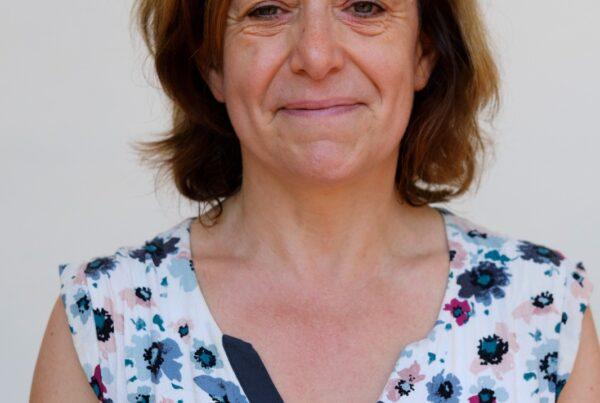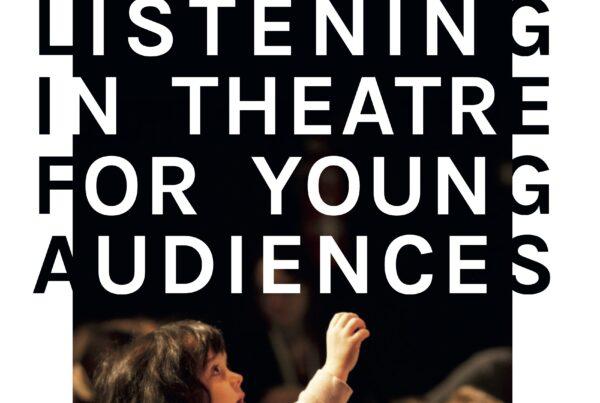ASSITEJ Awards
ASSITEJ has four awards that in different ways celebrate outstanding achievements and contributions to Theatre for Young Audiences locally, regionally and globally.
The four awards are given every three years at the ASSITEJ World Congress.
The award nominations are made by the national centres and professional networks of ASSITEJ.
The winners of the 2021 ASSITEJ Awards are:
ASSITEJ Award for Artistic Excellence:
Ellie Griffiths and Dalija Acin Thelander
The ASSITEJ Award for Artistic Excellence (Honorary Presidents’ Award) is given every three years for noteworthy artistic achievement in the field of theater for children and young people, and is the most prestigious award given by the organization.
The award was created by the late Dr. Nat Eek, Honorary President and former ASSITEJ World President (1972-75) in memory of his wife, Patricia Fulton Eek.
As of today, the award and the award price of $5,000 is still generously funded by the Eek family continued by Erik and Konrad Eek.
The ASSITEJ Award for Artistic Excellence is divided between Dalija Acin Thelander and Ellie Griffiths: two creative artists with vision for the future that approach their work with innovative practice in theatre for young audience.
About the winners
Dalija Acin Thelander has worked with intense focus in the past years in the form of sensory, immersive performance for Babies, approaching creation with solid research and investigation, with an eye for functional and effective design and for beauty and fantasy. She is a thinker and a maker, a dancer and choreographer and backs her performance works with critical thinking and experimentation. Dalija makes relationships all over the world and has made her works deeply accessible and able to tour, reaching into markets and to audiences that have little or no experience of work for babies and therefore impacting on the growth and learning around this subject. She collaborates with local artists wherever she goes and is driven by not only aesthetics but a continual sense of curiosity.
Ellie Griffiths became the Artistic Director of Oily Cart in 2018 after many years of working with the company as a performer and as a director, then with a few years as an independent practitioner. Her work springs from the pioneering discoveries of Oily Cart into territory that explores, examines and offers provocation into the relationship between young people and theatre, the nature of communication and sensory languages. Ellie brings design, sound and music and the fluid and responsive reactions of audiences with disability into her creative process- always working with young people as guides and consultants, and sometimes in co-creation. She firmly espouses ‘nothing about us without us’ and works alongside artists with disability in the creation of her work which is critically acclaimed and programmed.
Jury statement on the Award for Artistic Excellence: “As we celebrate the extraordinary achievements of our two awardees, the selection jury acknowledges the significant challenges and changes our international field has experienced this past year since our selection process began. This year, we offer an honorable mention to the artists, producers, educators, festival, and organizations that have worked tirelessly to continue serving children, young people, and communities through the pandemic. You have kept our industry alive despite the significant hardships, and inspired your communities at a time when they need you the most. At this moment when our work and our world are undergoing radical change in social, political, and environmental ways, we want to encourage a reimagining of the ways we define artistic excellence. Who decides what ‘quality’ in artistry looks like? How do we expand our definition to include more perspectives, cultural contexts, and identities? How can our values of Equity, Diversity, and Inclusion help guide our way forward in how we change and evolve our processes? Moving forward, we also suggest that the definition of “artistic excellence” is expanded for this award to recognize the achievements beyond generative artists and companies, and include award categories for creative leaders and festivals. In this way, we can celebrate the artistry of our wider international community and the profound impact they have.”
We work with children with a range of access needs – including children on the autism spectrum and those with complex and multiple disabilities who may have limited movement and/or sensory impairment and complex communication needs. Our shows and programs are developed in collaboration with our target audience which ensures that they are tailored to our audiences’ specific needs. Our delivery model enhances this experience with pre-show and post-show “embedding” workshops and digital resources to maximise their understanding and enjoyment.
ASSITEJ Applause for Lifetime Achievement Award:
Emelie Fitzgibbon, Berta Hiriart and János Novák
This award recognizes those who have played a distinctive and inspiring role in the world of TYA – whether as artist, designer, producer, technician, administrator, teacher, facilitator, mentor – for their outstanding body of work over time, and for their profound and lasting contribution to theatre for young audiences in their country or region. This award recognises the long, prominent, and influential career of the person concerned, and his or her particular commitment to the development of theatre for young audiences.
About the winners
Emelie Fitzgibbon has been an inspirational force in Irish theatre for young audiences, identifying, encouraging and supporting the development of countless Irish artists, playwrights, directors and other creators. She is recognised not only within her country but also across the English-speaking world, as a driving force in TYA. She is spoken of as being a leading figure in the history of TYA in Ireland.
She is founder (1984) and was Artistic Director of Graffiti Educational Theatre Company in Cork, Ireland. She was the founding director of the short-lived Everyman Youth Theatre in Cork, directed the Pan Celtic Song Contest and, for the Cork Theatre Company, directed seven productions between 1981 and 1984 before focusing on educational theatre.
Her educational theatre productions, mostly for Graffiti but also for Replay (Squinty and the Scots Giant) and Very Special Arts (A Slice of Life), have been seen not only in Ireland but also in the U.K. (Forget Me Not, It’s Not Fair, The Riddle Keeper, Lives Worth Living, Frog and Toad), France (Forget Me Not, Circles, Graffiti on the Move), Sweden (Maze of Power), Finland (A Slice of Life), and the U.S. (Infidel). As an Educational Drama leader she has worked with teachers and youth leaders in Sweden, Malta, the U.S., Austria, Switzerland, Hong Kong and the Czech Republic.
Her reviews and articles on poetry, Irish Theatre, Educational Theatre and Youth Theatre have been published in a wide range of newspapers, magazines and journals in Ireland, the UK, Hungary, China, Switzerland, the U.S. and Australia.
She has served on the Editorial Boards of Theatre Ireland, STET arts magazine, currently Youth Drama Ireland and has been appointed to the Advisory and Review Board of both the IDEA Journal and The Applied Theatre Researcher, based at Griffith University in Australia. She has served on the boards of Cork Theatre Company, Everyman Palace Theatre, NAYD, Cork Midsummer Festival, Asylum Theatre Company and CIT Arts Committee.
As a member of the Executive and as Chairperson, she has been involved with the National Association for Youth Drama for about twenty two years with involvement in the National Festival of Youth Theatres, the National Youth Theatre, European Youth Theatre Encounter (Dublin ‘91), National and International Drama Conferences and was Chair both of the Irish Educational Drama Forum and the NCCA Committee to introduce Drama as a subject at Junior Cycle.
She has worked extensively with New York University’s Department of Educational Theatre, has worked since 1990 on their Drama in Education course in London, and has been six times Course Director of their Irish Study Abroad Programs in Theatre and Youth, based on the work of Graffiti Theatre Company.
Berta Hiriart: The Mexican theatrical landscape aimed to children cannot be thought of without the presence of Berta Hiriart. Since the 70’s, she has been a pillar and spearhead to generate a professional, respectful and complex theater for young audiences. Her numerous plays and publications, in the field of dramaturgy, such as essays, research on methodologies, are references charged with keen eyes and tireless exploration.
Teacher by nature, she has shared her knowledge within the university academy, and in her way of life. Delivering courses across the whole country, it can be said that in each entity, a Berta Hiriart play has been performed. Her plays have been translated into Tzotzil, Polish and German; as well as the Mexico – Poland co-production “If you don’t tell it, who will know?” As director and co-director, her work has been presented in the main theaters of our countries, as well as in Spain, Costa Rica, Poland and the United States.
She has been a pioneer in the creation of theater festivals for young audiences, such “Open Curtain”, the first festival of that kind in our country. She has supported others, such as the International Fair of Literature, the National Meeting of Theatre made by Children, and has collaborated with the Ministry of Culture creating cultural programs for young audiences. At the same time, she has been a pioneer in Mexican feminism, co-founding the magazine “Fem”, the first with a gender focus. She has shared this mixture of interests with the new generations of creators, emphasising the importance of generating proposals that address complex issues such as migration, war, grief, violence of gender, as well as love, courage and hope.
We are inspired by her loving and discreet struggle, but forceful and transcendental. It inspires us to cross generational boundaries. We are inspired by her transversality, her defense of diversity, her free spirit that runs through the most remote places in the country, inspires us to provoke spaces for dialogue, to rethink the theater and its means of production, the relationships that are built in it and the way we communicate it to children. She inspires us as a woman who defends her cause and shares it. It is without a doubt, Berta Hiriart, a Mexican playwright, artist, creator from whom we want to share how much the theater has grown for children in our country.
János Novák: Founding Member and Executive Director of Kolibri Theatre for Children and Youth (Budapest) since 1992, President of the Hungarian ASSITEJ Centre since 2000, Artistic Director of the ASSITEJ International Children and Youth Theatre Biennial of Kaposvár (Hungary) since 2002. One cannot talk about the history of children and youth theatre in Hungary without mentioning and emphasising the achievements of János Novák.
It was nearly 40 years ago when he first got involved with children’s theatre and he stayed committed to the younger generations ever since with insatiable curiosity, enthusiasm and creativity. Throughout his career as a theatre director, artist and president of the Hungarian ASSITEJ Centre, he has always felt a great responsibility to represent the interests and needs of children, and his aim has been to promote the operation and performances of many theatre companies for children and youth. He has played a major role in the national and international promotion of the most successful Hungarian productions and writers for young ages. As President of ASSITEJ Hungary, he has been the Artistic Director of the internationally recognised ASSITEJ International Children and Youth Theatre Biennial of Kaposvár (Hungary) which is the most significant Hungarian theatre festival for children. In Hungary, he was the first theatre-maker who introduced important innovations: a differentiated repertoire for three different age groups (early ages, children and youth), theatrical productions for children aged 0-3, classroom theatre, addressing taboo subjects in the plays, and creating permanent positions for theatre pedagogues within the institution.
János Novák’s dedication and endless energy for finding new ways and platforms to engage, educate and entertain young audiences inspired many artists both in Hungary and abroad: he has been a key figure in building a bridge between young and older generations, and artists and creators within and beyond the borders of Hungary. He recently has been newly appointed as executive director of Kolibri Theatre for another 5-year term.
ASSITEJ Inspirational Playwrights Award:
Maria Ines Falconi, Omphile Mulisi and Suzan Zeder
The ASSITEJ Inspirational Playwrights Awards are administered and adjudicated by the Write Local Play Global network in coordination with the ASSITEJ Executive Committee.
Highlighting the importance of playwriting in all its manifestations around the world, the association will honor up to three persons as ASSITEJ Inspirational Playwrights every three years at its World Congress. The awards were first presented in Cape Town in May 2017, and 2020 in Tokyo will mark the second incarnation
The essence of the work we all do is telling stories on our stages, and this award exists to honor particular writers who have inspired theatre for young audiences in their city, their country, their region, and/or all over the world.
About the winners
Executive Summary: After a lengthy global nomination and assessment process as detailed in this report, we are honored and delighted to present to the ASSITEJ Executive Committee our choices for this award.
As editors of a website and leaders of a network that seeks to globally showcase the work of writers creating the best of theatre for young audiences, we find that the 2020 ASSITEJ Inspirational Playwrights are, in alphabetical order:
- Maria Ines Falconi, Argentina
- Omphile Molusi, South Africa
- Suzan Zeder, USA
Most of the thirteen nominees exhibited a high level of both artistic excellence and commitment to the field.
Time and again throughout the nomination and assessment process though, there were two attributes – interrelated yet individual — that stood out: mentorship and artistic empathy.
Looking to the challenges of 2020 and beyond, the importance of providing training, guidance, and support to younger writers is paramount to these playwrights’ careers, even helping open doors of creation to theater-makers who might never have thought of themselves as playwrights.
The generosity extended to fellow writers also deeply informs their own writing. They create characters and situations that deeply connect with the lives of the young people who see their plays. In a world that increasingly embraces nationalism, xenophobia, and intolerance, the role of theatre as a ‘greenhouse for empathy’ is more important than ever. All three finalists write plays that come from a deeply personal yet universal place, creating a theatrical world where young people can see people both like them and not like them – a rich artistic empathy that fills a theater space with simple humanity and wonder.
Maria Ines Falconi
From nomination:
- Marie Ines Falconi is a theatre director and Drama and Playwriting in TYA Professor in Universidad Popular de Belgrano and Drama School Buenos Aires City. She has also presented workshops, lectures and conferences in different countries around the world.
- She created and organized different international projects related to TYA like Taboo Workshops, Schoolyard Stories in Latin America- theatre for adolescents and International TYA Researchers and Critics Forums in Buenos Aires.
- She has opened the field for playwrights in Argentina and beyond, to tackle painful subjects, countering a tendency towards what Laura Gentile calls “aseptic theatre”
From assessment panel:
- [She inspires] both . . . through her work and through who she is as a person.
- a strong influence on the theater of Latin America;
- Dealing with difficult contemporary subject matter such as war, in a poetic, healing and yet unsentimental way, the inspiration she provides to other playwrights is the courage to not look away.
- choosing to address topics so closely related to children’s everyday lives, in direct connection with their social surroundings, is of extreme importance for the development of the new generations.
- “Pedro and the War Cantata” brings out the themes of the impact of war on everyone’s lives and the absurdity of people killing people for whatever reason. Both themes are absolutely necessary and as relevant in 2020 as they were when the play was first staged.
- there is a softness and sensitivity to audience and material which extends storytelling into a sensory theatrical experience
- as we all know about her work and playwriting transmission in Argentina and more, I would add to that her commitment into Assitej at the EC, representing playwrights and south Americans, and especially her creating structures to help TYA people on the long term
- María Inés Falconi’s plays deal with contemporary topics in a highly communicative and moving way.
- She is a strong voice in Latin America and her plays has been played all over the world. She is brave in choosing her topics and writes about difficult subjects for a young audience such as disability, sexual diversity, war and conflicts.
Omphile Molusi
From nomination:
- Omphile is an acclaimed actor/director playwright who studied at the Market Theatre Laboratory, and is Artistic Director of the TsaMmu Theatre, a platform which provides opportunities for a new generation of writers. His play Balalatladi is part of the ground-breaking anthology: New Visions/New Voices: 25 Years/25 Plays
- Being able to write about a country’s trauma and managing to bridge the two different sides is a great achievement and speaks to his strengths as a playwright.
- Through TsaMmu, Omphile is inspiring a whole generation of young writers who will create original stories about South Africa.
From assessment panel:
- Omphile Molusi is one of those people who generously gives of his time and knowledge to those coming after.
- he is a big inspiration where he lives and works, especially through the playwriting course TsaMmu, inspiring a whole generation of younger playwrights in South Africa. [This is] no little achievement in this region.
- Omphile Molusi has created an incomparable body of work that has contributed to the canon of great contemporary South African work.
- His brave voice, being a living example of what is possible and through selflessly guiding others as well as creating opportunity for the next generation
- His work seems energized and infused with the inclination to tell stories stemming from extremely real and personal places, writing about history that has been painted with one brush stroke. He seems like a playwright who is able to talk about difficult things while also inspiring young people.
- his work has a great impact both in South Africa, and also when this work travels to festivals across the world, lifting up different sides and other voices than what is often shown and given a voice.
- There’s a fine sense of humor, a rhythmic quality to the characters’ lines which make the scenes somehow breathe and get us – audience members/readers – to engage with the characters. To me, a sense of humor is fundamental to empathizing, and Molusi has this masterly touch.
- I did like the language, the form, the playfulness and the evocativeness of the excerpt ; in his biography, the fact that he is writing in various languages, as playwrights for YA have to do in South Africa, seems to me a special skill he’s developed, which enriches our field
- I’m impressed by his commitment into transmission thanks to Market Laboratory and within personal mentoring relationships
Suzan Zeder
From nomination:
- She inspired me to go on an artistic journey that led to my authentic voice and gave me the courage to write the things that previously scared me most.
- Perhaps the single most extraordinary thing she has given us [all] is the reminder that children and their stories deserve our deepest engagement.”
- She laid the foundation for a new chapter in the evolution of TYA
- . . . the unfolding of the rich, often disturbing complexity of her characters and worlds thereafter
- Her plays have been performed in all fifty states [of the USA, as well as] Canada, Great Britain, Germany, Japan, Korea, Israel, Australia, and New Zealand.
- She was awarded the first-ever endowed chair in Theatre for Young Audiences and Playwriting at the University of Texas at Austin, [arguably the finest graduate program in TYA in the USA]
From assessment panel:
- Undoubtedly an alchemist of the medium and its possibilities for mending and connecting in divisive and discordant times, Susan Zeder is the definition of an inspirational playwright.
- “she has inspired generations of new playwrights” and “seems to go out of her way to inspire and make opportunities for others”
- Zeder has a great respect for her audience, and has throughout her career dedicated her writing to not as light entertainment, but truly dive into difficult topics, not shying away from taboos and lifting on to the stage diverse characters and issues, inspiring both the audience and theatre artists to take themselves and what they create seriously
- There’s a cry for humanity in her writing, an intense and moving atmosphere of reconciliation. A loving and tender perception of the human being fills her characters with boldness and dignity. Zeder’s creations heighten the level of theatre creation for young audiences, offering them – and anyone willing to listen – a new, fresh and hopeful perspective of life.
- she paved the way for other writers to embrace the complexity of childhood

Geesche Wartemann Emerging Scholars Award:
Dr. Claire Mason
The award is named after one of the founders and past chair of ITYARN, whose untimely death of cancer in 2019 was a severe loss for many of us and felt to this day. Geesche was not only an outstanding researcher but she also cared deeply about her students and young professionals in the field. This award is an honorary award, the awardee has been offered a presentation at the ITYARN conference which happened during the World Congress & Festival in Tokyo, and will be offered a board position on the ITYARN board.
About the winner
The winner of the first Geesche Wartemann Emerging Scholars Award is Dr. Claire Mason, who finished up her Dissertation in January 2021 at the University of Wisconsin -Madison.
Claire’s research focused on Alternative Dramaturgies in Contemporary Western European
Theatre for Young Audiences and explores the ways in which contemporary Western European alternative dramaturgies operate through methods of reception which treat their spectators as equal creators of a joint-text, recognizing and operating within the ideological framework of young people as experts of their own life experiences. Claire has been participating in ITYARN conferences since 2017 and was a next generation candidate for the ASSITEJ Artistic encounter in China in 2018. She helped run the ITYARN conferences in Cape Town and Kristiansand in 2017 and 2019 respectively. Serendipitously, Claire’s dissertation draws, among other scholars, on Geesche Wartemann’s research which she presented at the ITYARN panel on March 23rd and is still available for viewing on line. Claire was selected as the first candidate of this award by the ITYARN board; for the record I note that as Claire’s advisor I recused myself of the selection process and tallying of votes from the beginning.
Claire, congratulations. I am very proud of you and I know you will be an excellent addition to the ITYARN Board.





